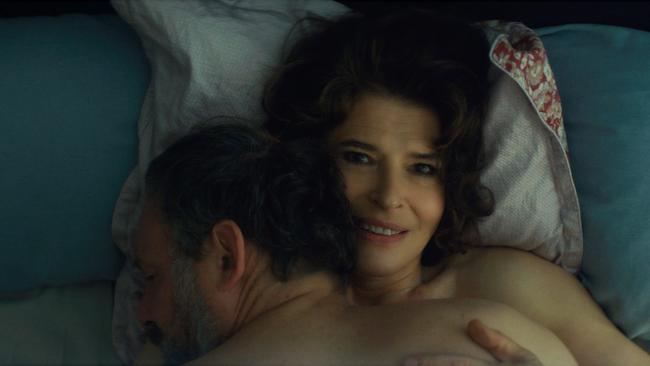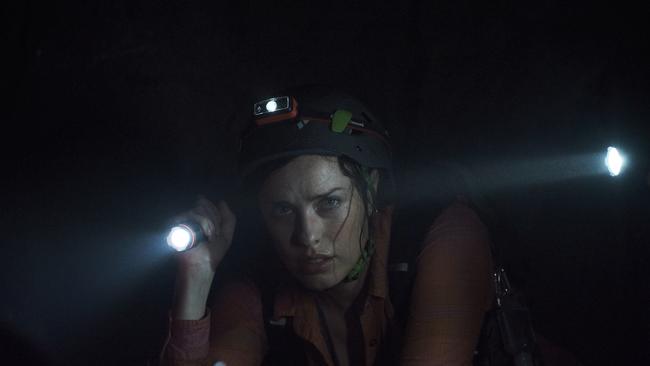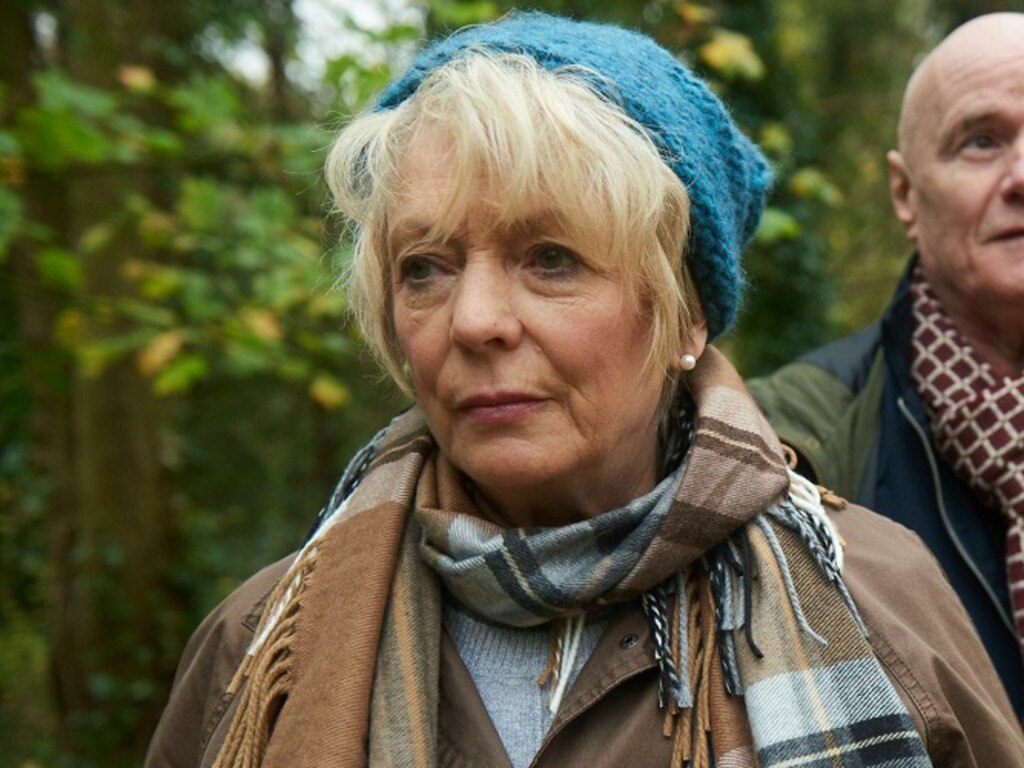Westworld inspires time-travelling French fantasy La Belle Epoque
An enterprising company recreates the past so wealthy tourists can experience what it was like to live a chosen moment in history.

La Belle Epoque (M)
★★★★
Limited release
The premise of writer-director Nicolas Bedos’s second feature film is not far removed from that of Westworld, the novel written by Michael Crichton, who also directed the 1973 film version; it’s a story that still proves popular thanks to the on-going TV series adaptation. Westworld conjures a time in the near future when tourists who wish to experience their own popular culture fantasy in real life can, after paying a hefty fee, be transported to the Old West or onto a rocket in outer space. In La Belle Epoque, a smart new variation on the theme, an enterprising company called Time Travellers can, for a very considerable fee, recreate the past so that the wealthy tourist can experience what it was like to live, or to re-live, his or her chosen moment in history – a virtual trip into a nostalgic past, at least for a day.
Victor (Daniel Auteuil), a political cartoonist aged about 70, rejects just about everything about modern life; he’s the quintessential technophobe and, though he still lives in the same Paris apartment as Marianne (Fanny Ardant), his psychiatrist wife of 40 years, he’s aware that she’s having an affair with his friend, Francois (Denis Podalydes), who also happens to be one of her patients. No wonder Victor is depressed and is letting himself go; he really has nothing much to live for.
Maxime (Michael Cohen), Victor’s son, decides to do something to cheer the old man up. He’s friendly with Antoine (Guillaume Canet), the boss of and brains behind Time Travellers, and thinks his Dad might benefit from experiencing an exciting adventure back to the past. Victor is persuaded and agrees to select a place and date of his choosing. He decides on May 16, 1974; that was the day he met, and fell in love with, Marianne, who was working as a waitress at a bistro named La Belle Epoque. He was in his twenties then, and the world was his oyster.
Before he can be taken back in time he is interviewed by members of the Time Traveller staff; he supplies drawings that illustrate the events of that unforgettable day, a script is written, a set is built, actors are hired. The recreation of the place and time is meticulously carried out, and an actress is hired to portray Marianne. She is Margot (Doria Tiller) and she’s so successful in her role that jaded old Victor finds himself falling in love all over again – so much so that he reaches into his own pocket to pay for a second day in La Belle Epoque.
Bedos has a lot of fun recreating the early 1970s, a time when everyone smoked like chimneys, the music was great, men and women dressed colourfully and politics seemed a lot simpler. The result is a film that’s very easy to enjoy, even though it’s not at all difficult to see where it’s going.
Auteuil and Ardant are veterans at this sort of comedy and they give impeccable performances, while Tiller is a joy as the bewitching Margot. There are a number of engaging marginal characters, including Pierre Arditi who plays an actor cast in various roles in the production and Lizzie Brochere as Giselle, Marianne’s giddy friend (who is now a lawyer in the Ministry of the Interior). In fact, there are lots of in-jokes referring to politicians and events of the time that only a French viewer of a certain age would fully appreciate.
Unfortunately, Bedos does a terrible job with the film’s opening sequence, which consists of a gathering in a salon where Time Traveller clients are introduced. Not only does the film pack in an enormous amount of information in a very short time (giving the non-French speaker and the English sub-title writer a seriously hard time) but the scene is too frantic, too confusing – and too badly photographed – to provide a suitable entrée into what soon proves to be an enchanting movie. I nearly bailed out during the opening scene, but I’m glad I stayed. Once you get past that misjudged curtain-raiser, the film is immensely enjoyable.
-

Black Water: Abyss (M)
★★★
Limited release
Director Andrew Traucki loves to put attractive people in harm’s way. The Australian director started this trend with Black Water (2007) – which he co-directed with David Nerlich – in which four friends find themselves menaced by a hostile crocodile and spend much of their time up a tree trying to avoid the beast. Traucki followed that effective low-budget effort with The Reef (2010) in which sharks menace the hapless vacationers. And now comes Black Water: Abyss, which is more of the same except that this time the four young adventurers, plus the obligatory and disposable guide, find themselves trapped underground somewhere in North Queensland, in the lair of a hungry saltie.
The film commences with a scene involving a couple of Japanese tourists who have become lost in the bush and fall down a hole, never to be seen alive again. After this brief preamble we’re introduced to Eric (Luke Mitchell), his girlfriend Jennifer (Jessica McNamee) and their friends Yolanda (Amali Golden), who is pregnant, and Viktor (Benjamin Hoetjes), who is recovering from cancer. Eric is keen to explore a recently discovered underground cave system and local man Cash (Anthony J. Sharpe) has agreed to guide the explorers.
Unsurprisingly, a series of disasters befall the foolhardy and insufficiently prepared adventurers. A heavy rainstorm occurs and the water in the cave system starts to rise. And it’s not long before the denizen of the abyss makes its toothy presence felt, though it’s to Traucki’s credit that he delays the moment when the viewer first sees the creature for as long as possible, which certainly adds to the tension.
Basically this sort of film comes down to a basic question: In which order will the characters get eaten? There are few surprises here, but there are some twists in the tail, including a coda in which two of the characters emerge from the depths only to find more peril on the surface.
Ever since Steven Spielberg made us afraid to go into the water with Jaws back in 1975, films about sharks and crocodile have been popular. There have been several successful Australian films about big crocs, including Arch Nicholson’s Dark Age (1987), a film beloved by Quentin Tarantino, and Greg McLean’s Rogue (2007). Traucki works with limited budgets, hence the small number of characters who find themselves under threat. He uses visual effects sparingly but effectively, and when we finally see the monster in Black Water: Abyss it looks uncomfortably real. There’s a contemporary spin to the horror as well: if it’s about anything – apart from warning visitors to Northern Australia to be very, very careful – this is a movie about female empowerment.
If you like this sort of thing you’ll find plenty to appreciate in this effective, though slightly protracted, thriller. But if films about large predators with big teeth are not your bag, you’d do best to stay well away.



To join the conversation, please log in. Don't have an account? Register
Join the conversation, you are commenting as Logout